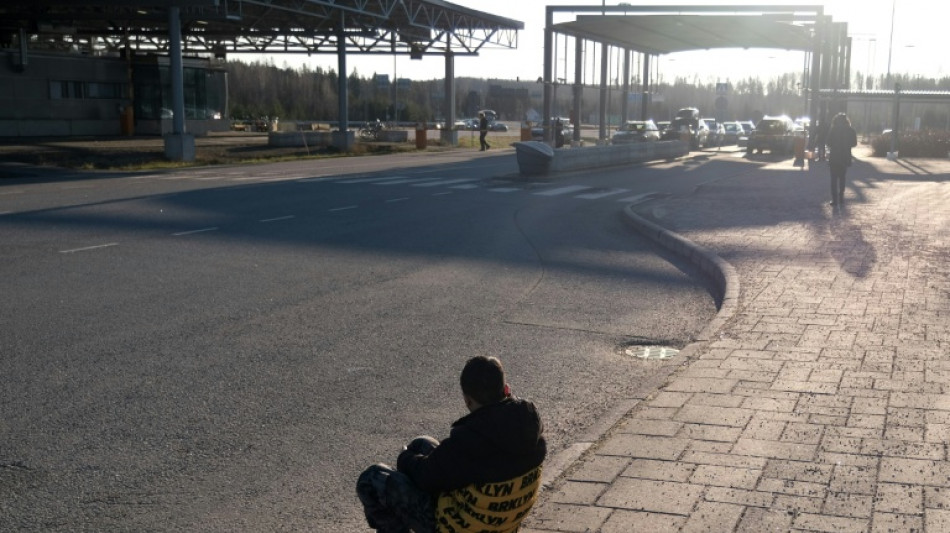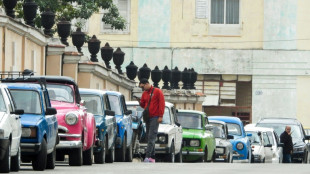

Finland's crackdown on undocumented migrants sparks fear
The Finnish government's crackdown on immigration has led to a sharp rise in deportations, raising fears among undocumented migrants who could face dangerous situations in their home countries.
At a Helsinki day centre called "Toivon talo", or "House of Hope", where undocumented non-European migrants can get legal, social and medical help, people chat while enjoying the free lunch served most days.
The centre, run by a Christian organisation and volunteers, provides help to people who in most cases are staying in Finland illegally after their asylum applications have been rejected, or their residence permits or visas have expired or been turned down.
"My situation is very, very, very difficult," a Moroccan woman in her fifties told AFP, requesting to remain anonymous.
A social services worker by training, she came to Finland in early 2024 to search for a job, but was unable to find work during the 90-day period that third-country nationals can stay without a residence permit.
As of last year, undocumented migrants are unable to apply for work in Finland -- they must instead do it from their home country.
"I can't go back to Morocco, because I'm now divorced and when my ex-husband finds out that I'm back... He can be aggressive," she said, adding she had been ordered to leave in November.
Anne Hammad, project manager for House of Hope, told AFP she has seen a rise in the number of people at the centre who fear deportation ever since Finland's right-wing government, in power since 2023, began tightening the country's immigration policy.
Many were in vulnerable situations and often concerned about returning to their countries for different reasons, she added.
Between January and September 2025, some 2,070 foreign nationals were deported, a 30 percent increase from the same period in 2024, according to Finland's National Police Board.
Chief superintendent Janne Lepsu said foreigners' right of residence was now "investigated more closely".
"If it is found that a foreign national does not have this right, every effort will be made to ensure that they leave Finland or the Schengen area," he said.
There is no official data on how many undocumented people live in Finland, but estimates suggest between 3,500 and 5,000 in recent years.
- 'Paradigm shift' -
Since 2023, Finland has introduced stricter requirements for obtaining asylum, residence permits, family reunification and citizenship, though it welcomes work-based immigration.
The government's aim is to better manage immigration, strengthen internal security and align Finland's immigration policy with other Nordic countries.
"We have considerably tightened our immigration policy. We can probably even talk about a paradigm shift in this regard," Finland's Interior Minister Mari Rantanen told AFP.
Several other EU members have also cracked down on immigration in recent years.
Researcher Erna Bodstrom from the Migration Institute of Finland told AFP that "before, it was possible to build a secure life in Finland for more immigrants".
"But that is not the case anymore."
Around 11 percent of Finland's population of 5.6 million had a foreign background as of 2024, with the number growing steadily during the 2000s, according to Statistics Finland.
While the figure is still higher than in the 2010s, both work-related immigration and asylum applications have declined in recent years.
- Less individual consideration -
"Negative decisions on residence permit applications are now more common than before" and cases receive less individual consideration, Finnish Immigration Service spokesman Johannes Hirvela told AFP.
Meanwhile, Finland is increasingly enforcing deportation rulings even if people have appealed against their rejected asylum applications, according to the Immigration Service's director of Control and Monitoring Tirsa Forssell.
The majority of visitors at the House of Hope are men aged between 30 and 45 from Morocco, Somalia or Iraq, but the undocumented people there also include families, children, elderly people and victims of human trafficking from more than 40 non-EU nationalities.
"It's difficult," said 30-year-old Rachid, who arrived from Morocco in 2022 as a seasonal worker.
After his contract ended, he started looking for a new job, but now that possibility has been ruled out.
He spends his days at the House of Hope, waiting.
"I hope the next government will change the rules."
C.Acosta--GBA



